Featured Images
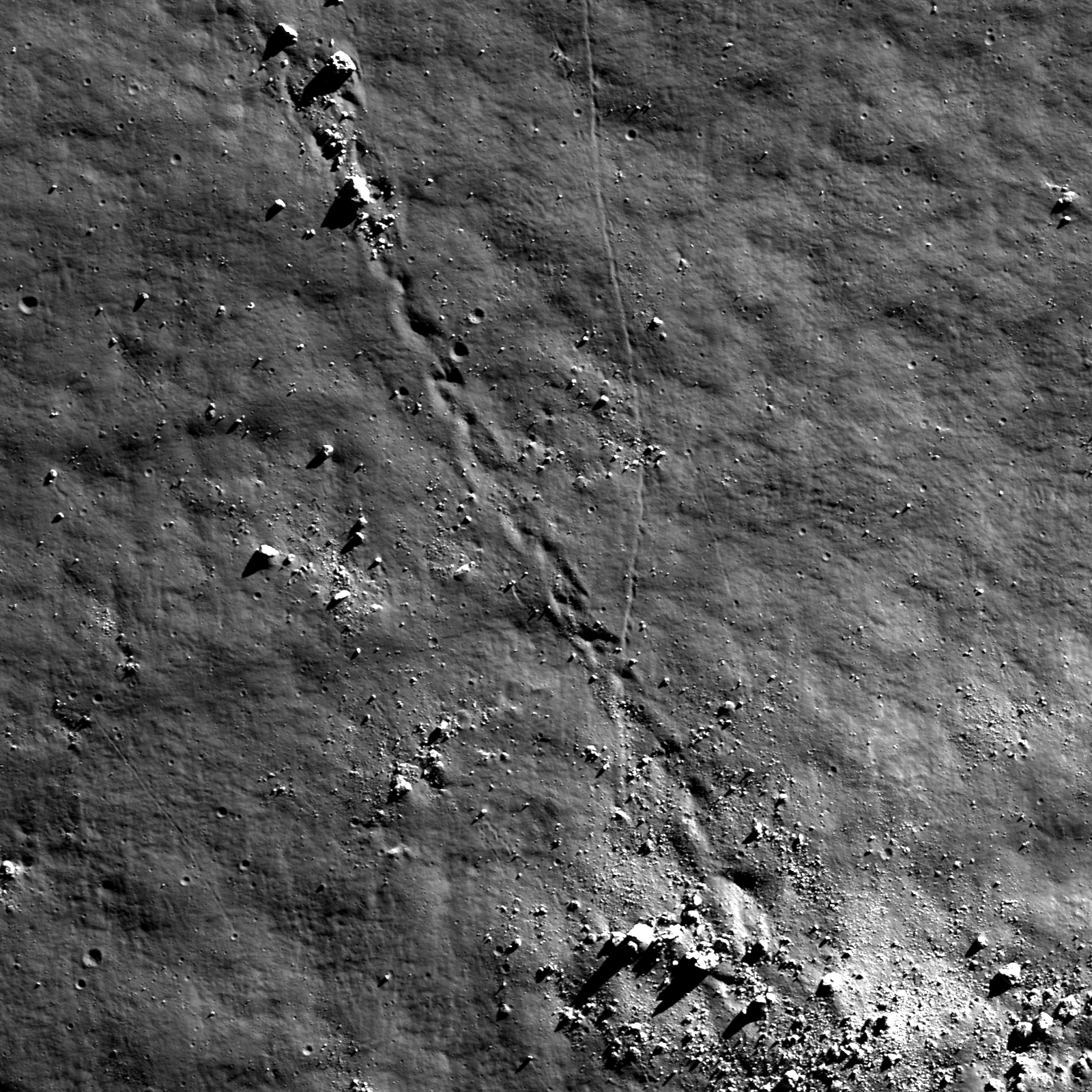
Sampling Schrödinger
Boulders rolled down an incline on a terrace near the Schrödinger basin rim. Boulders are ~20 to 30 m in size. Image width is ~1.2 km, downslope direction to upper left, LROC NAC M159017963R [NASA/GSFC/Arizona State University].
Published on 17 Aug 2011
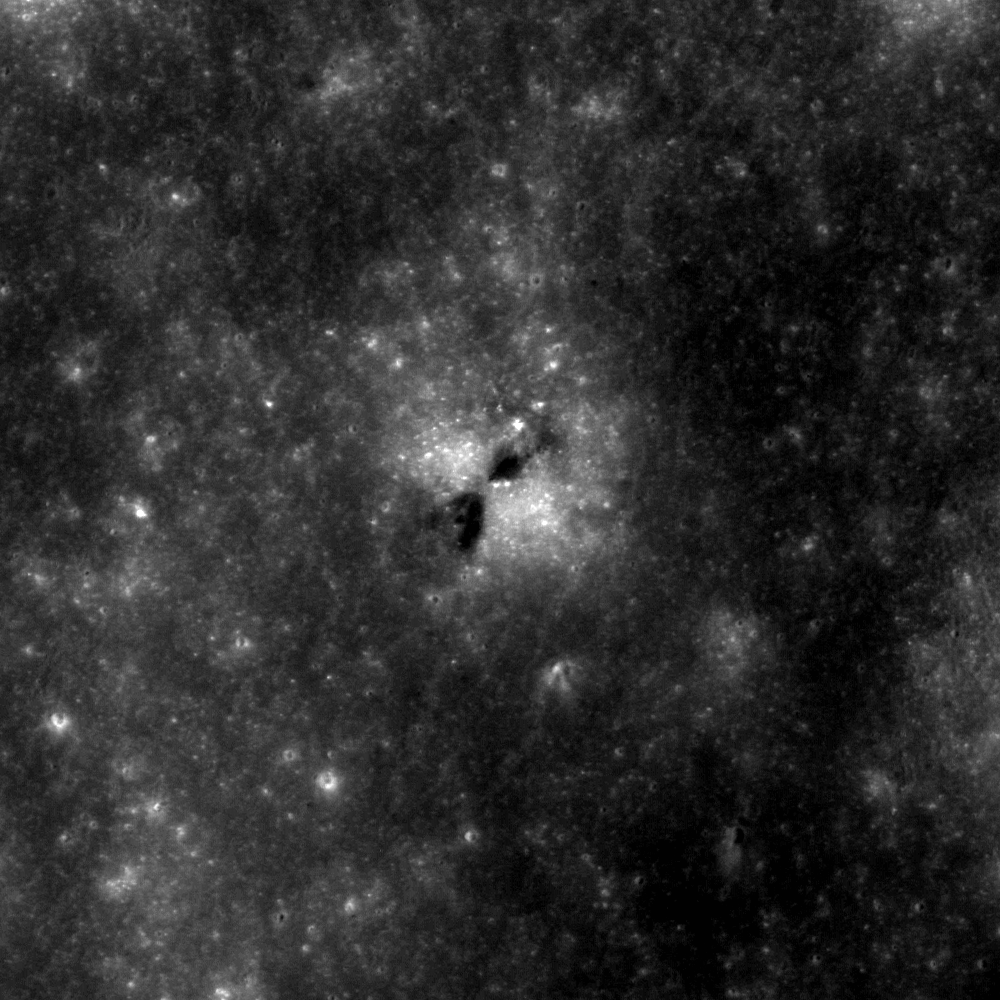
Crash or Coincidence?
An odd-looking impact feature raises an intriguing, Apollo-era trivia question (3.02°N, 119.15°E). NAC image number M141485413; incidence angle 12°; Sun is from the east; north is up; image is ~600 meters across [NASA/GSFC/Arizona State...
Published on 20 Jul 2011
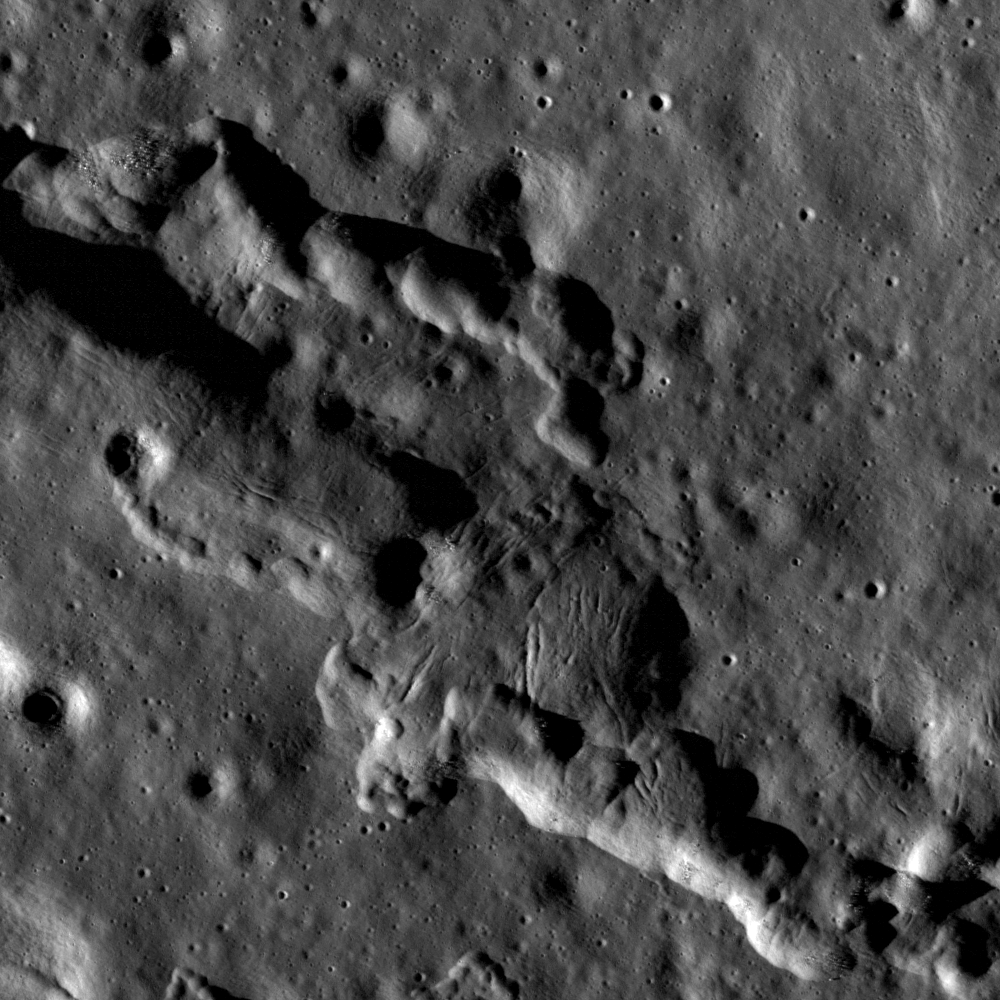
Stress and pull
Cracks - not boulders! - abound on the ridge crest of this wrinkle ridge in Mare Imbrium. LROC NAC M102171046LR, image width is 1.7 km [NASA/GSFC/Arizona State University].
Published on 13 Jul 2011
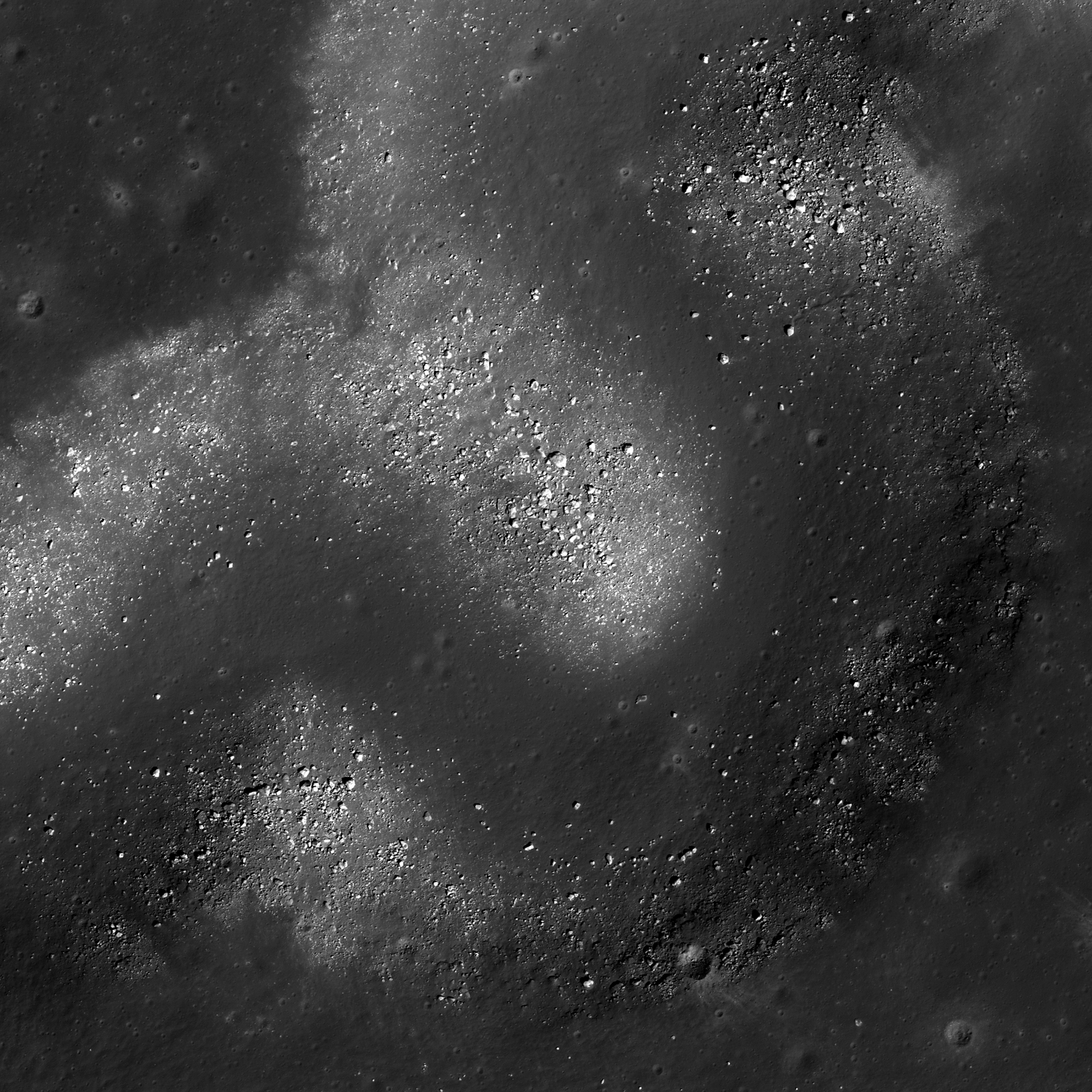
Old Man River (of Lava)
A tight turn in a sinuous rille. Could you drive a SUV sized rover through it? Probably, it's flat on the bottom. Just watch out for house-sized boulders. Image number M157934151L, incidence angle 35°, image is 1.75 km across...
Published on 28 Jun 2011
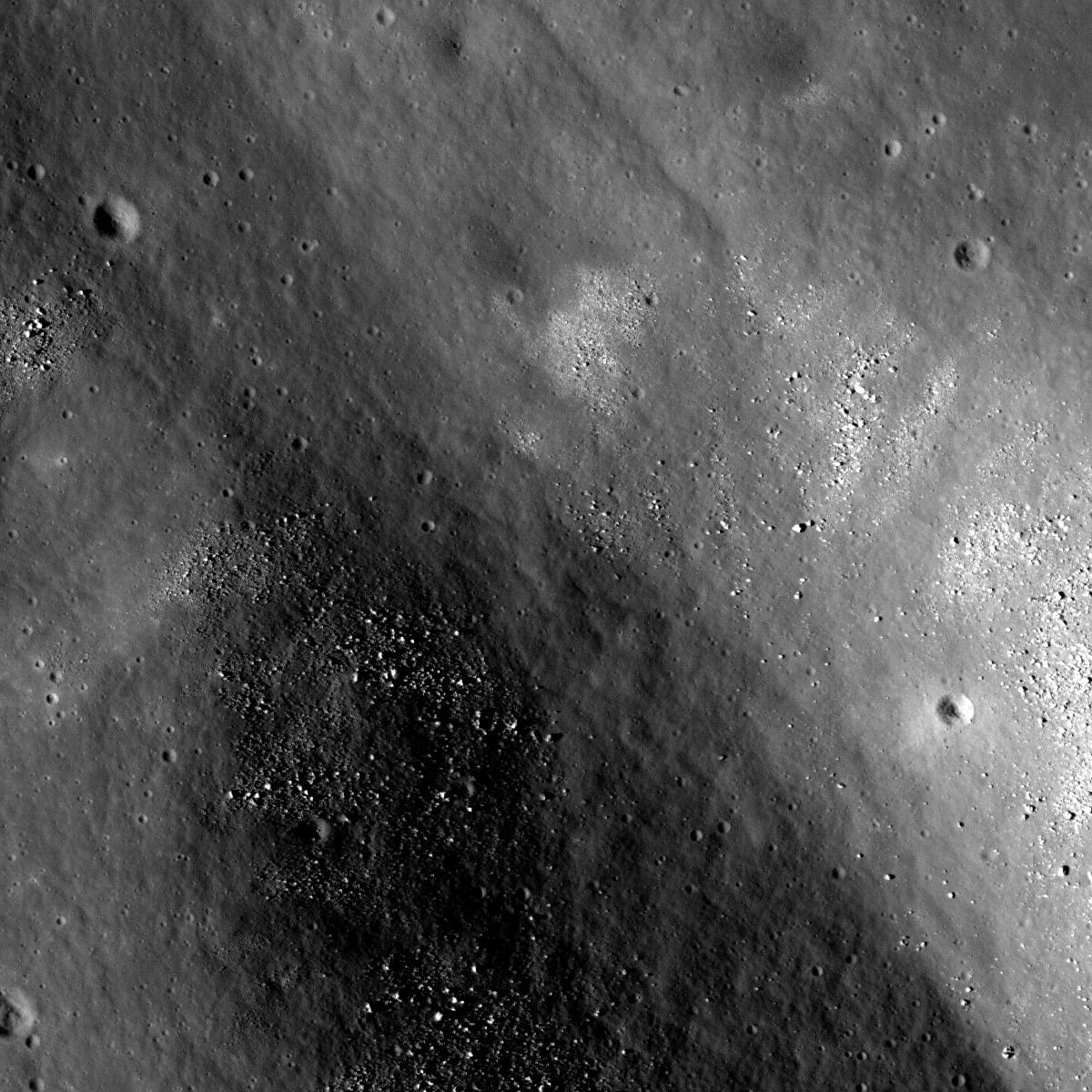
Discontinuous rilles
Northwestern edge of disconnected depression (14.53°N, 311.43°E) from Rima Marius. Image number M135507533R, incidence angle 58°, image width is 550 meters [NASA/GSFC/Arizona State University].
Published on 12 May 2011
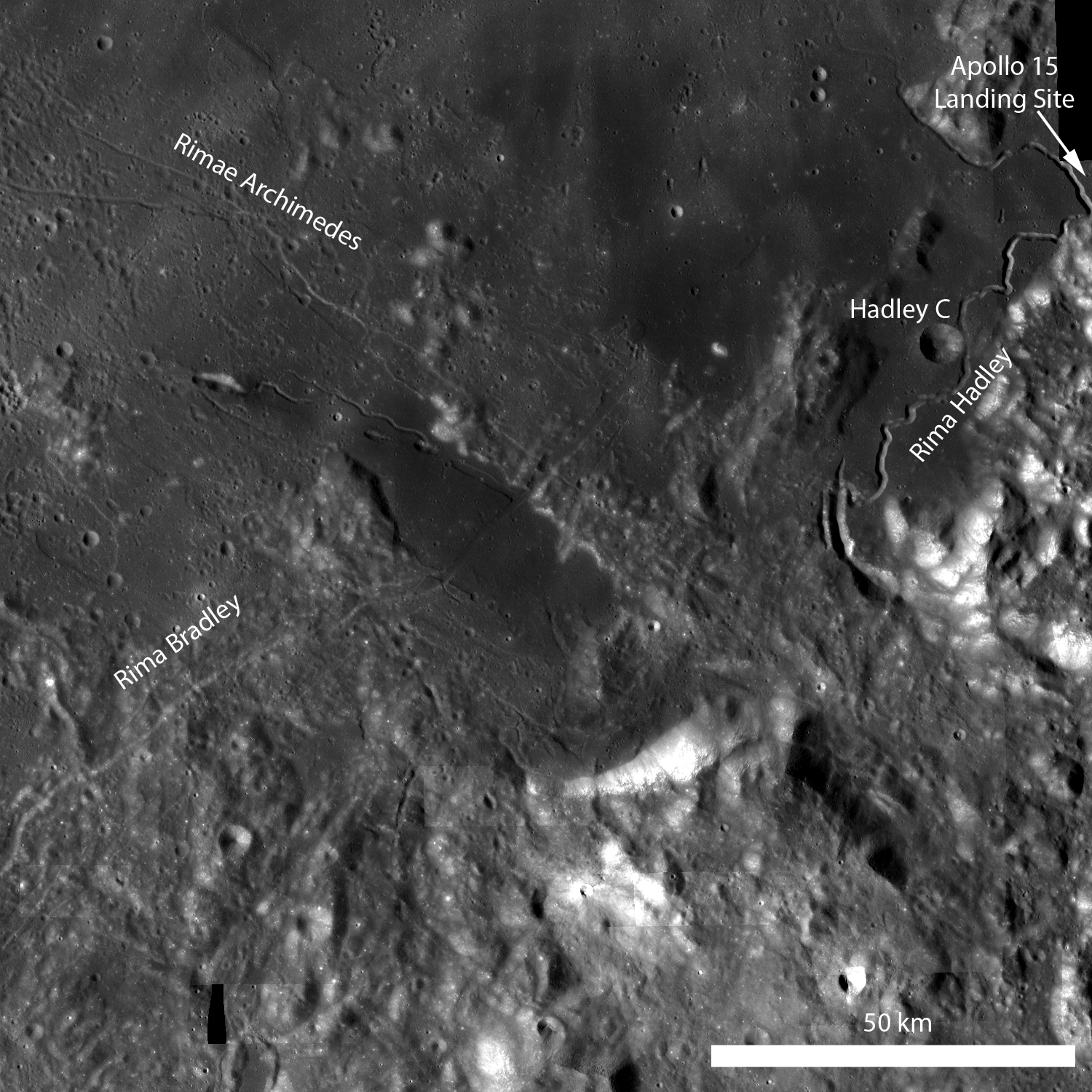
Rima Bradley
Rima Bradley is a northeast/southwest-trending linear rille located between Mare Imbrium and Palus Putredinis (very close to the Apollo 15 landing site). Rima Bradley probably formed as a result of tectonic stresses in the Imbrium...
Published on 10 Feb 2011
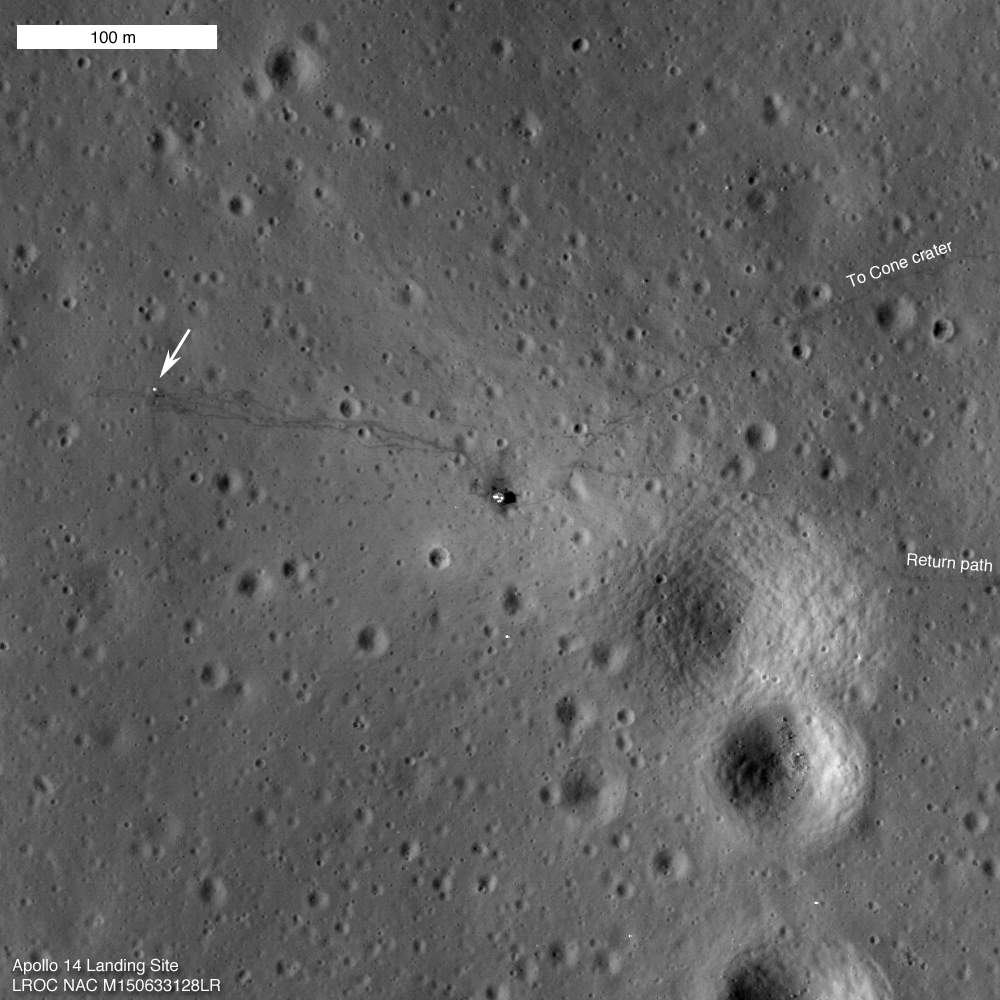
New View of Apollo 14
NAC image of the Apollo 14 landing site acquired 25 January 2011. Descent stage of lunar module Antares in center, image width is 500 meters [NASA/GSFC/Arizona State University].
Published on 04 Feb 2011

Crater Mendeleev
The LROC WAC 100 m/pixel monochrome mosaic shows the entire Crater Mendeleev (313 km in diameter). The white box marks the location of Catena Mendeleev [NASA/GSFC/Arizona State University].
Published on 03 Feb 2011
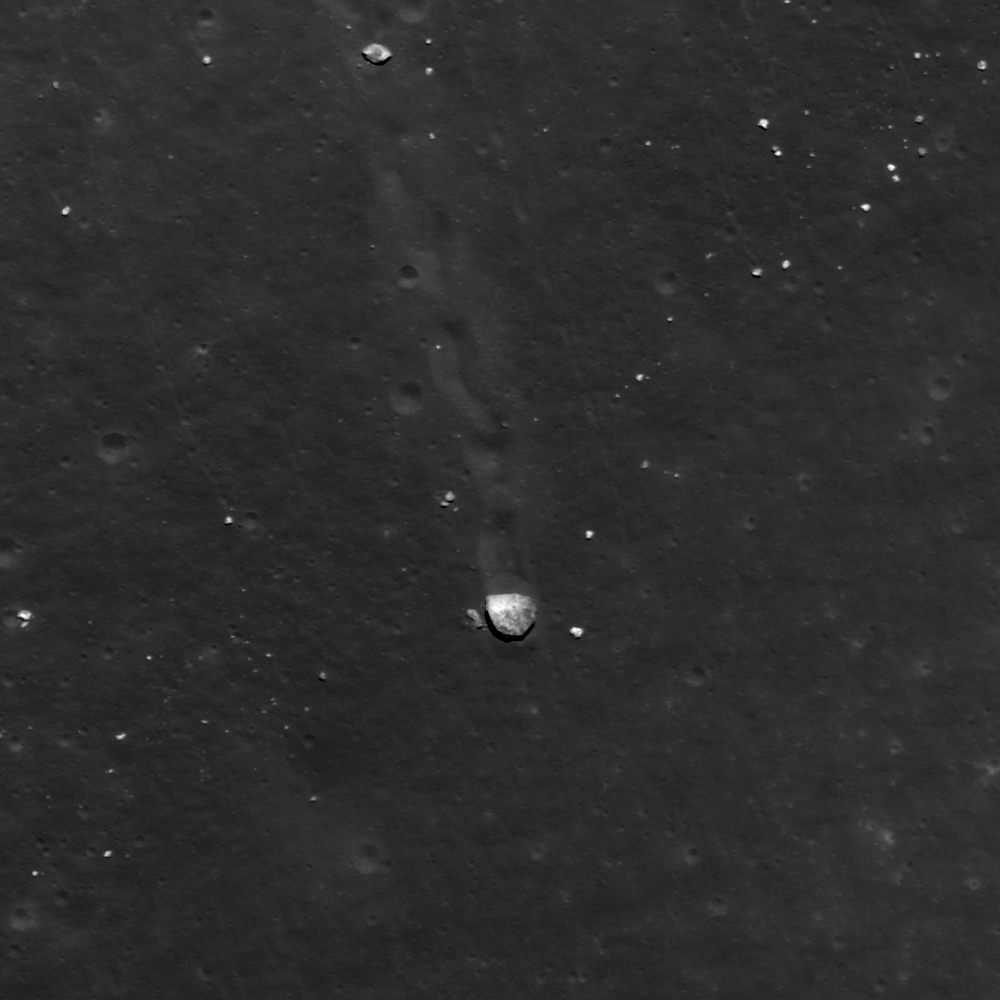
Gassendi's Central Peak
Close up of a boulder (25 meters or two school buses wide) on the central peak of crater Gassendi. LROC NAC frame M109495053R, image width is 450 m [NASA/GSFC/Arizona State University].
Published on 03 Nov 2010
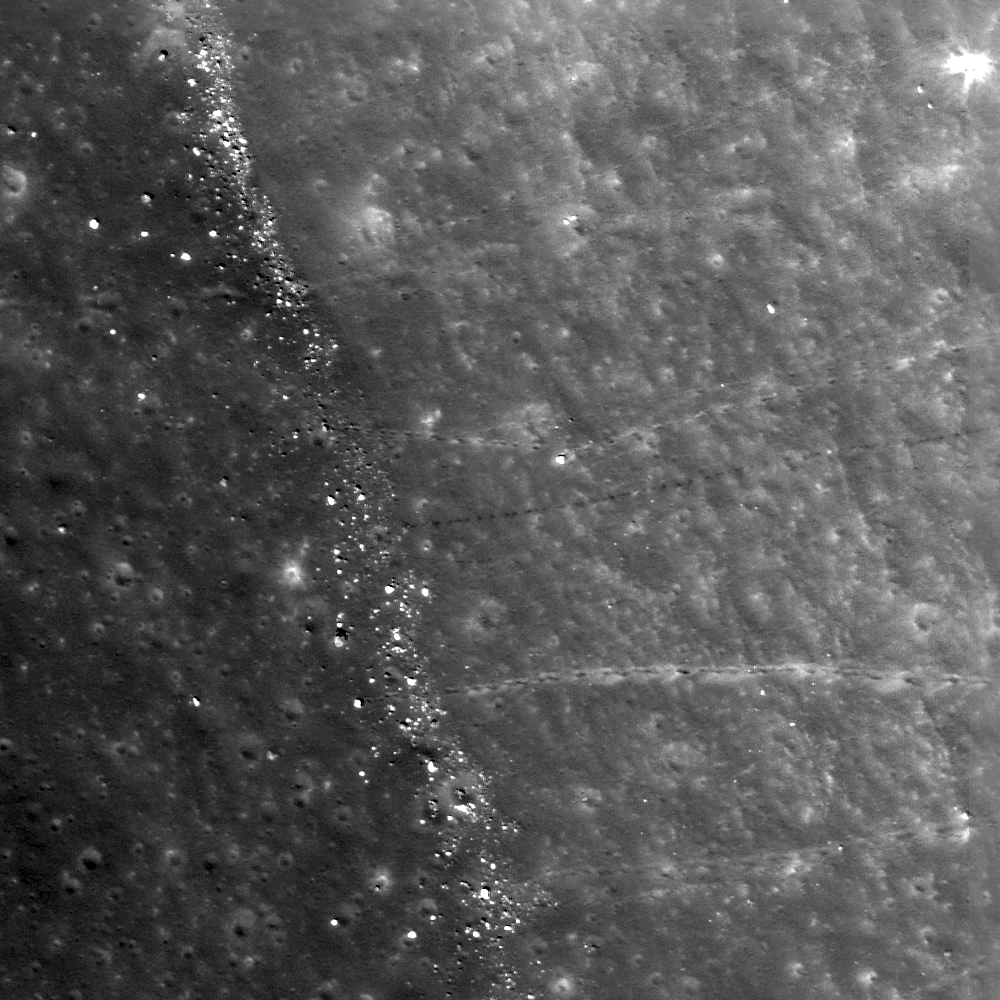
Boulder trails in Menelaus crater
Boulder trails are common to the interior of Menelaus crater as materials erode from higher topography and roll toward the crater floor. Downhill is to the left, image width is 500 m, LROC NAC M139802338L [NASA/GSFC/Arizona State...
Published on 29 Oct 2010
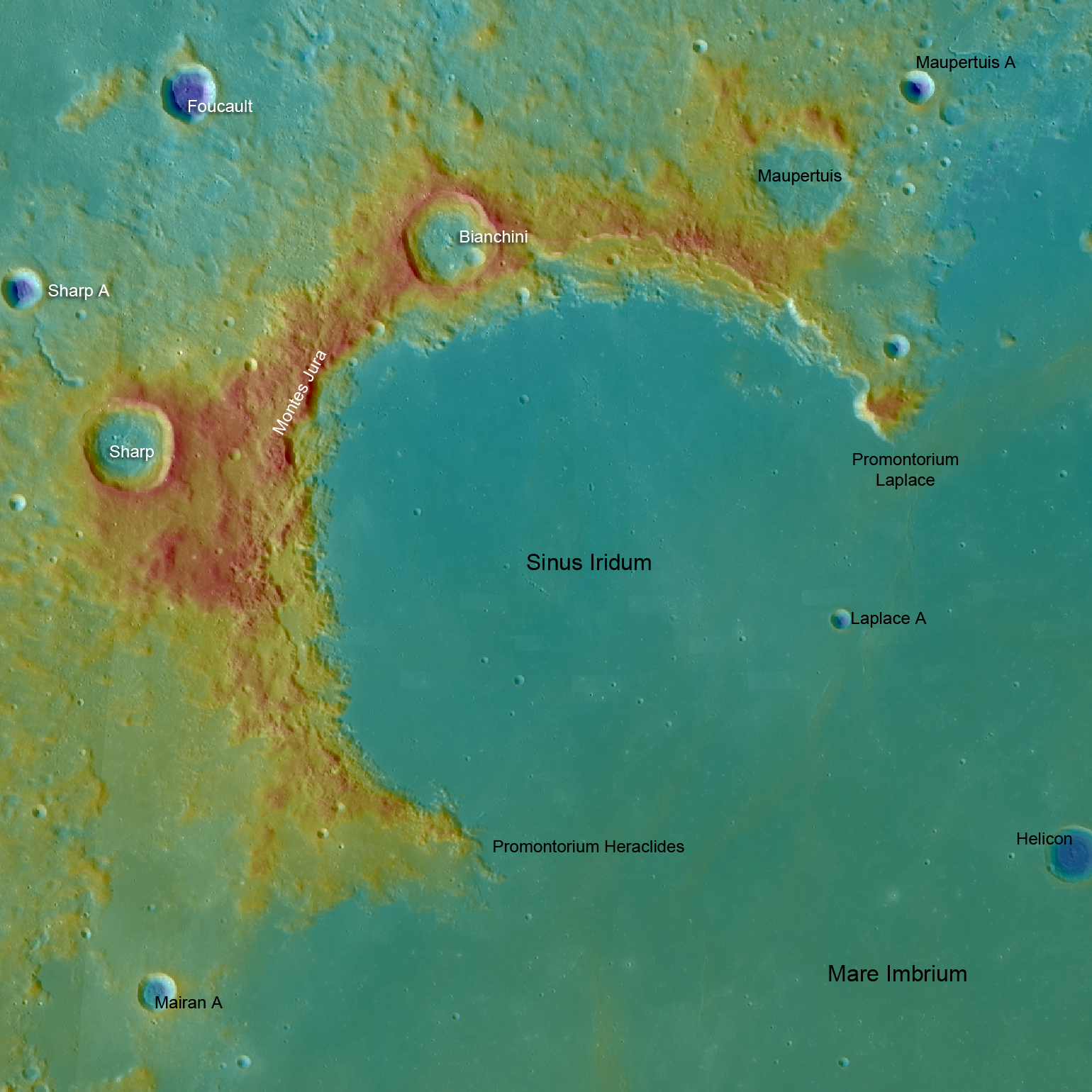
Sinus Iridum - Next Destination?
LROC WAC topography of Sinus Iridum, blue shows the lowest areas and red the highest. From promontory to promontory Sinus Iridum is 235 km across [NASA/GSFC/Arizona State University].
Published on 15 Oct 2010
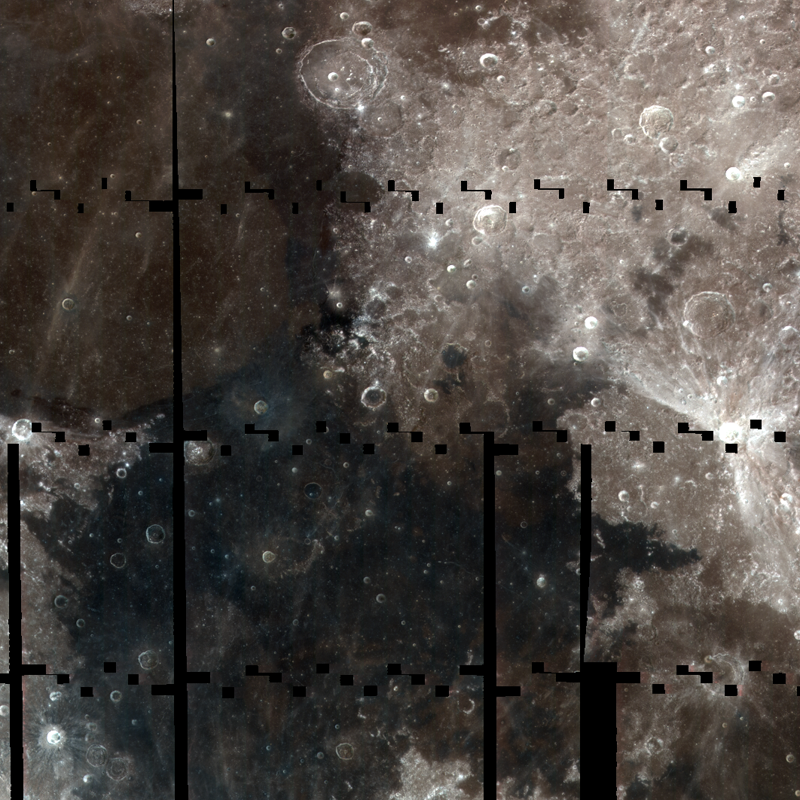
Color of the Moon
The LROC WAC is busily mapping the Moon in 7 UV and visible wavelengths (320 nm through 689 nm). This color composite shows 320 nm light in blue, 415 nm in green and 689 nm in red, scene is ~1000 km wide [NASA/GSFC/Arizona State...
Published on 10 Sep 2010
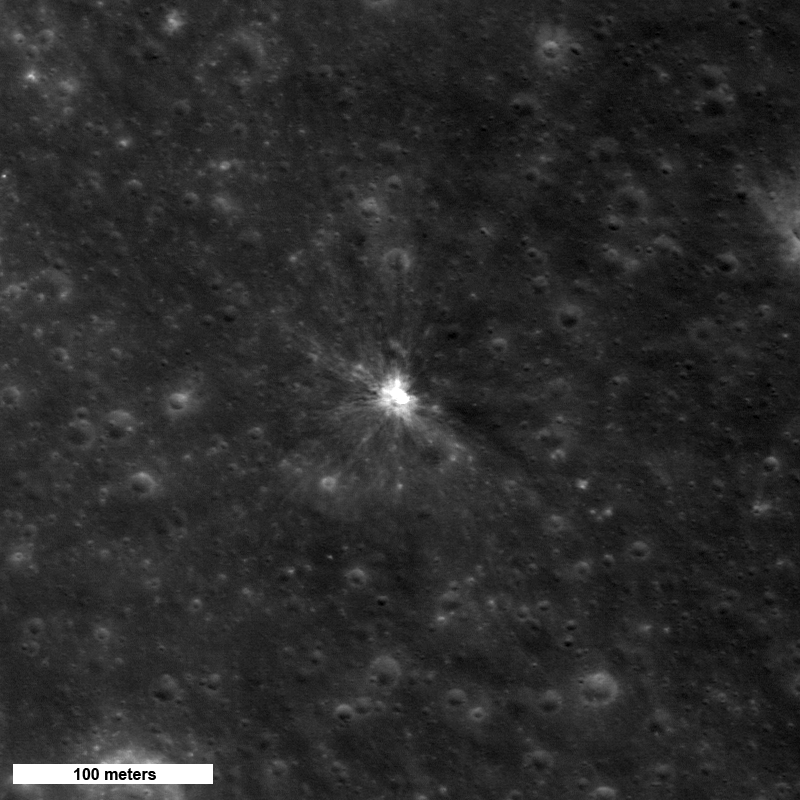
New Impact Crater on the Moon!
New impact crater on the Moon! Since this crater is not visible in images from the Apollo 15 mission, it formed sometime in the last 38 years. The new crater is only ~10 meters (30 feet) across, but its bright ejecta extends much...
Published on 27 Jul 2010
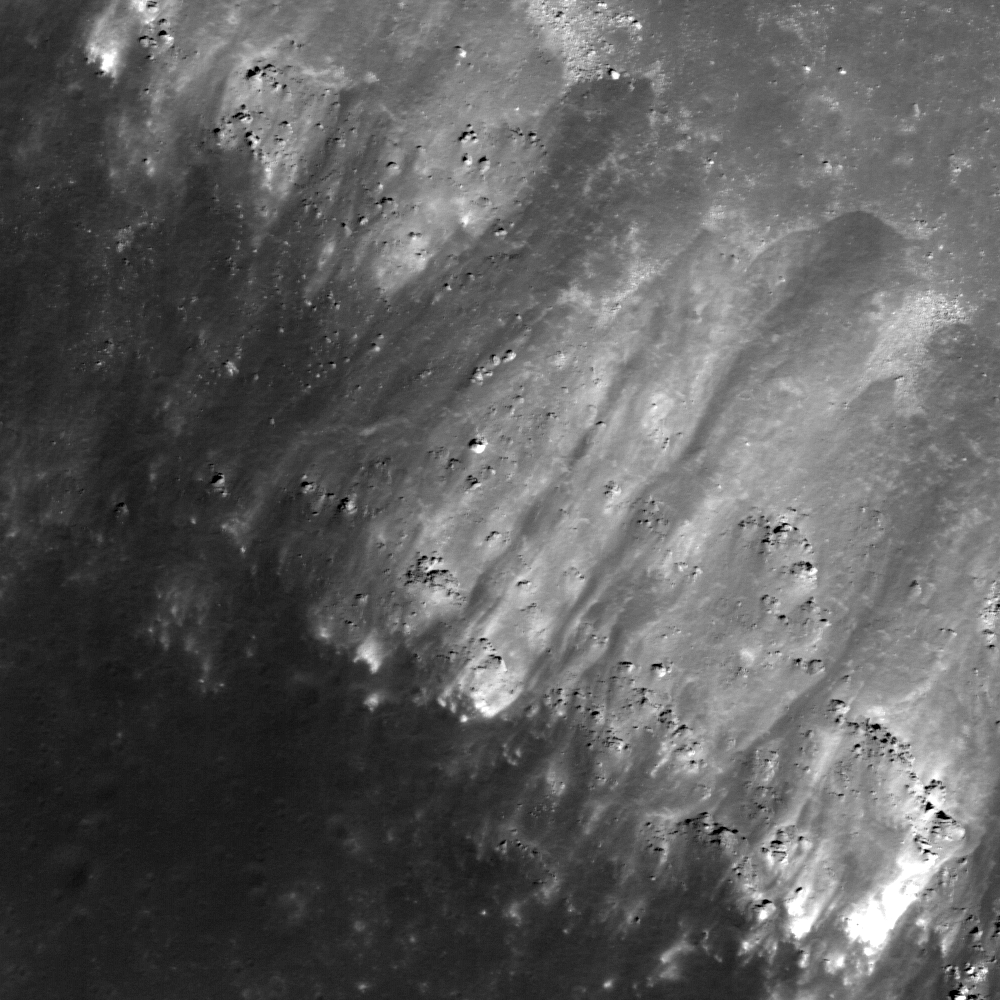
A Dark Cascade at Sulpicius Gallus
LROC NAC close-up of the wall of a suspected volcanic vent within the regional pyroclastic deposit near Sulpicius Gallus. Image M124505982R, view is 517 m across [NASA/GSFC/Arizona State University].
Published on 22 Jul 2010
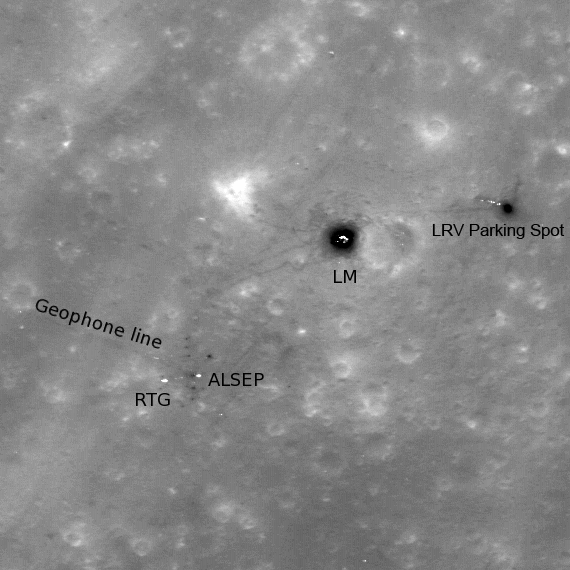
Apollo 16, Footsteps Under High Sun
High-sun image of the Apollo 16 landing site showing the lunar module descent stage, various pieces of equipment, and disturbed lunar soil (seen as darker lines and areas) which marks where John Young and Charles Duke traversed in the...
Published on 08 Jul 2010
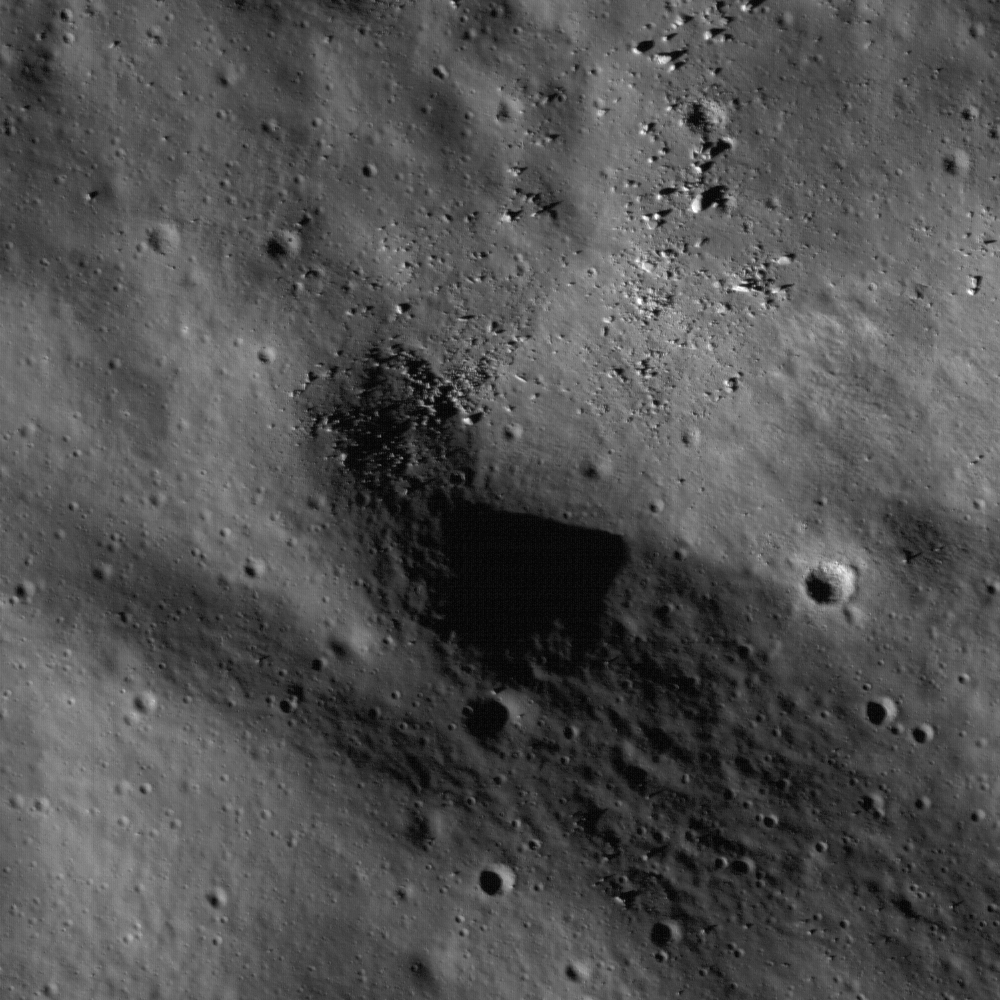
Mare Humboldtianum Constellation region of interest
Small crater and associated boulders near the center of the Constellation region of interest in Mare Humboldtianum, located at the mare-highlands boundary. Note the different textures of the highlands (in the lower left) and the mare...
Published on 03 Jun 2010
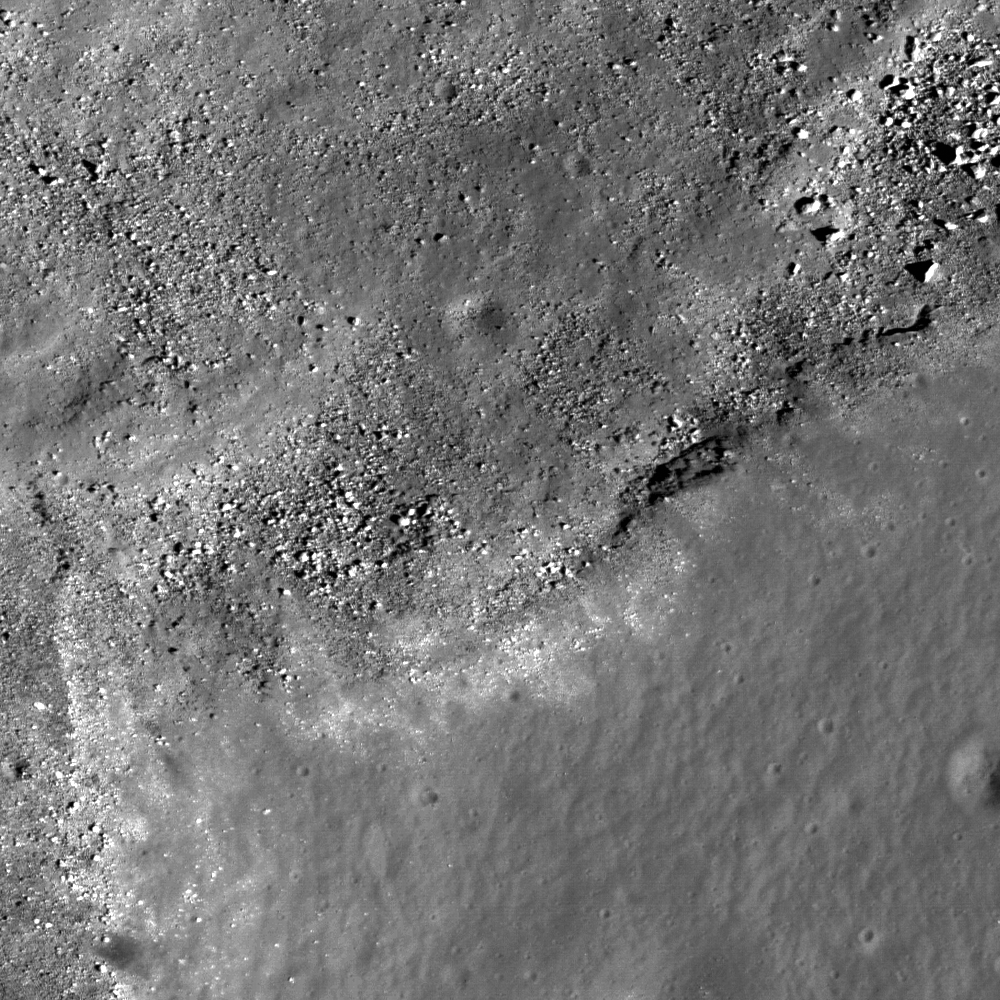
Marius Hills Constellation region of interest
Rim of a large sinuous rille on the western edge of the Marius Hills Constellation region of interest, showing materials that have slumped into the bottom of the sinuous rille towards the northwest as well as (possibly) outcrop, a prime...
Published on 01 Jun 2010
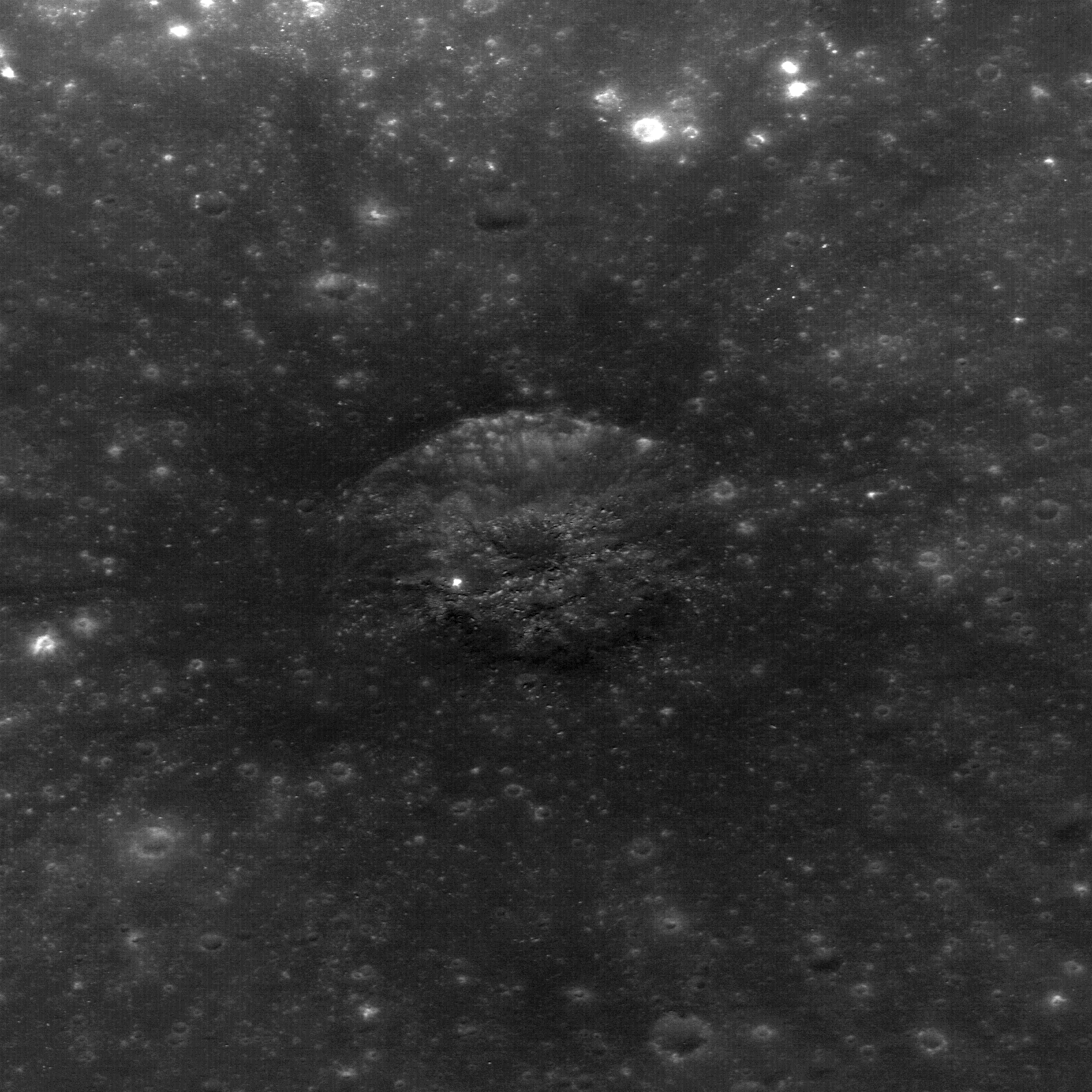
Rima Bode: Constellation region of interest
LROC NAC closeup of a small fresh crater (230 m across) with very dark ejecta within the regional pyroclastic deposit in the highlands near Rima Bode II. This site is near a NASA Constellation region of interest. This crater has...
Published on 18 May 2010
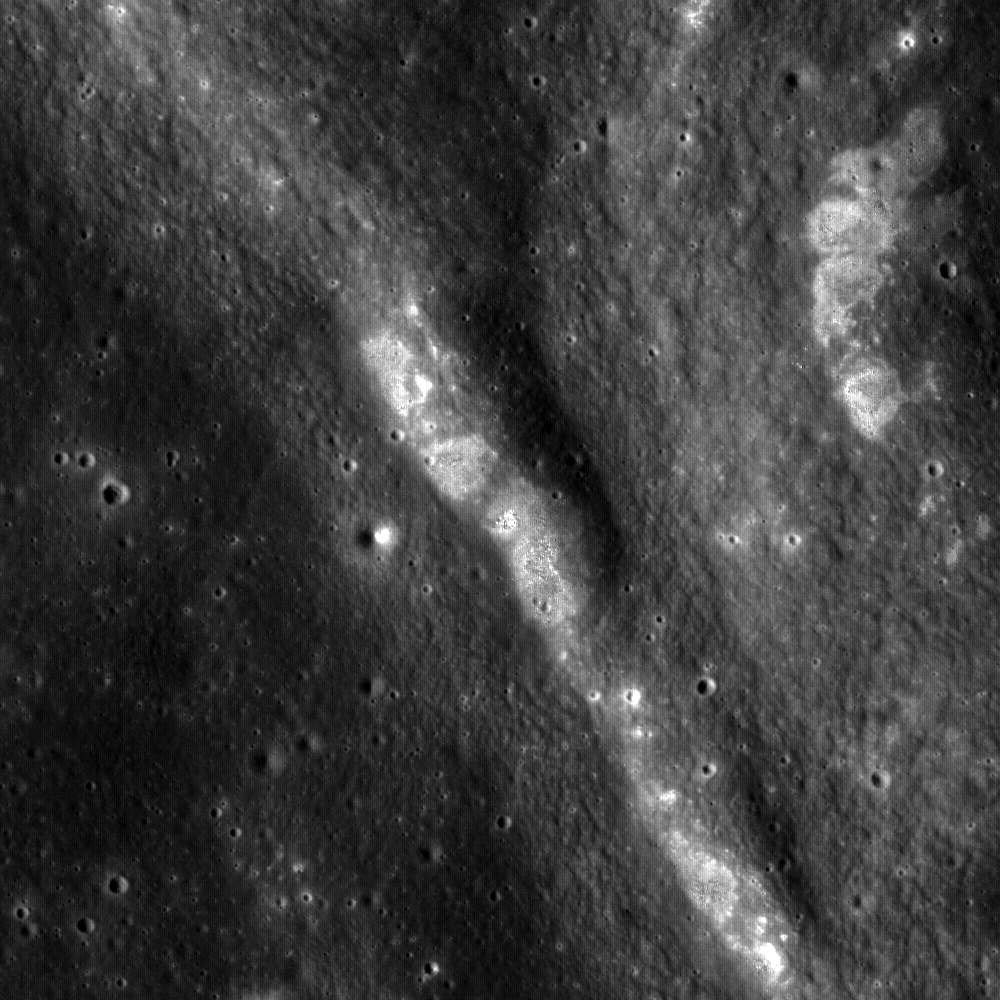
Constellation Region of Interest at Mare Tranquillitatis
Close up of a northwest trending wrinkle ridge in the high-Ti basaltic lava plains of Mare Tranquillitatis, near a Constellation region of interest. The bright areas along the steepest parts of the ridge are places where less mature...
Published on 27 Apr 2010
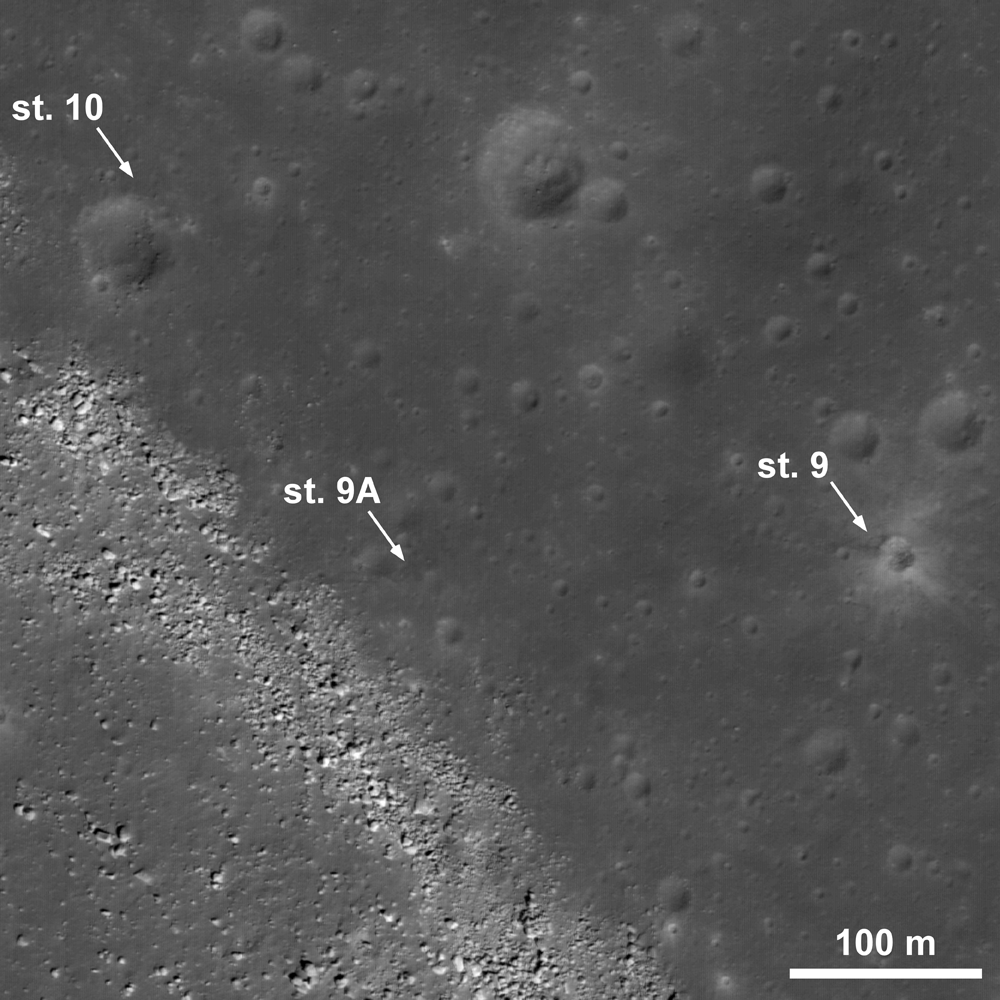
Retracing the Steps of Apollo 15: Constellation Region of Interest
The third and final EVA of Apollo 15 brought the astronauts to the edge of Hadley Rille (lower left). Disturbed regolith is observed along the crater rim at station 9 and at the edge of the rille at station 9A. Rover tracks are visible...
Published on 16 Apr 2010